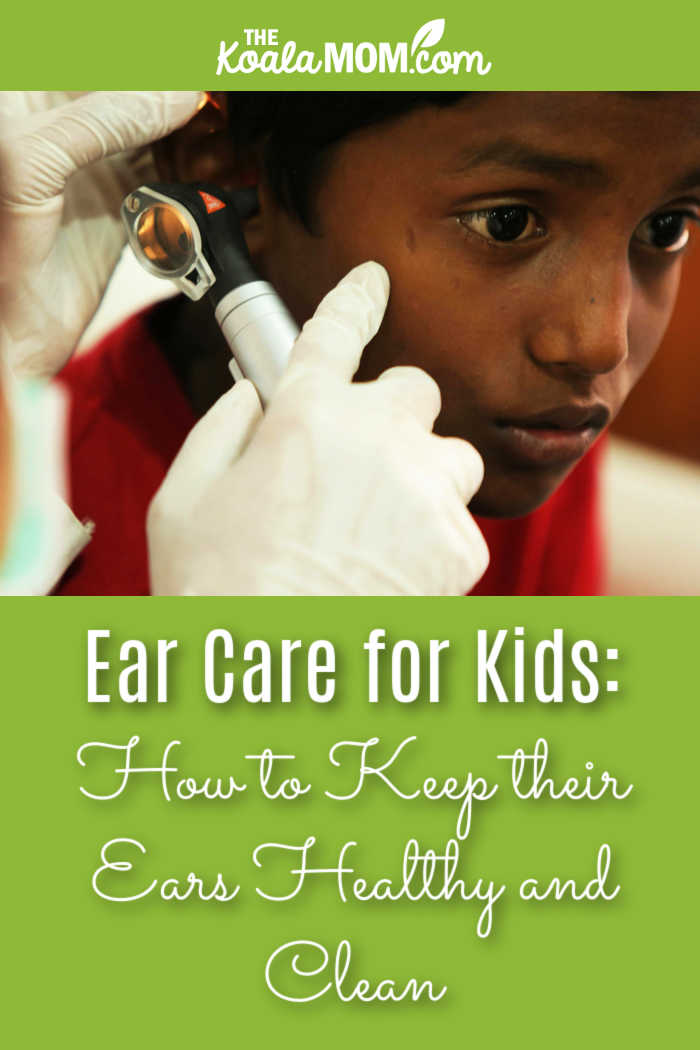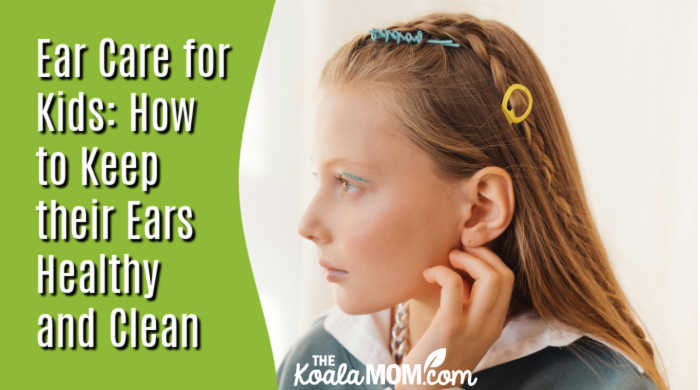As a parent, ensuring your child’s overall health is one of your top priorities, and ear care plays a critical role in their well-being. Proper ear hygiene can prevent discomfort and long-term issues like infections or hearing loss. Since kids are often exposed to various activities, like swimming, playing, and noisy environments, their ears require special attention. In this post, we will explore essential ear care tips for kids, offering advice on cleaning, prevention, and what signs to watch out for to keep their ears healthy.

The Importance of Ear Care for Kids
Ear health is often overlooked, but it is a vital aspect of a child’s health. The ear plays a significant role in hearing, balance, and communication. Poor ear care can lead to infections, wax buildup, and in some cases, hearing problems that affect a child’s speech and learning abilities. Taking simple measures to maintain ear hygiene can prevent common issues, ensuring that your child’s hearing and overall health stay intact.
Regular Cleaning: Do’s and Don’ts
Keeping your child’s ears clean is essential, but it’s important to do it safely. Avoid inserting cotton swabs, as they can push wax deeper or damage the eardrum. Instead, gently wipe the outer ear with a damp washcloth. If wax buildup becomes excessive, consult a healthcare professional for safe removal.
As we can see at https://thehearinghub.co.uk/, professional cleaning ensures that stubborn wax is removed without causing harm. Never use sharp objects or homemade remedies that could lead to infections. Regular hygiene and occasional professional care will keep your child’s ears healthy, preventing discomfort and potential hearing issues in the long run
Understand Ear Wax: How to Manage It
Ear wax, also known as cerumen, is a natural substance produced by the body to protect the ears. It traps dust, dirt, and other foreign particles, preventing them from reaching deeper into the ear canal. While most of the time ear wax naturally works its way out of the ear, sometimes it can accumulate, causing discomfort or even affecting hearing. If your child seems to be experiencing discomfort due to wax buildup, it’s important to consult with a healthcare professional. They can safely remove the wax without causing harm.
Prevent Ear Infections
Ear infections are common in children, especially those who are prone to colds or allergies. These infections can cause pain and irritation, and, if left untreated, can lead to hearing issues. To help prevent ear infections, make sure your child stays away from secondhand smoke, as it can increase the risk. Additionally, encourage them to wash their hands frequently, as germs can easily transfer to the ears, especially during cold and flu season.
If your child has frequent ear infections, it might be a good idea to have them checked for any underlying conditions, such as fluid buildup or issues with the Eustachian tube.
Keep Ears Dry after Swimming
Water can be a great source of fun for kids, but it can also lead to ear problems, particularly in swimmers. When water enters the ear canal, it can cause a condition known as swimmer’s ear, an outer ear infection caused by bacteria that thrive in moist environments. To prevent swimmer’s ear, dry your child’s ears thoroughly after swimming or bathing. You can use a towel to gently wipe around the ear, and if necessary, tilt their head to let water drain out. For frequent swimmers, consider using earplugs to keep the water out of their ears altogether.
Protect Ears from Loud Noises
Loud noises can be damaging to the ears, leading to hearing loss over time. Kids are especially vulnerable to noise-induced hearing damage, as their ear structures are still developing. To protect their hearing, limit exposure to loud environments, such as concerts or noisy tools.
When going to places with high noise levels, such as sporting events or amusement parks, make sure your child wears ear protection like earmuffs or earplugs designed for kids. This helps reduce the risk of hearing damage while still allowing them to enjoy these activities safely.
My dad’s hobby was woodworking, so he was often working with saws, planers, drills and other very noisy tools. However, he was also a stickler about safety, so he had three pairs of kid-sized earmuffs for my brothers and I. When we were in the shop, he made sure everyone was wearing ear protection before turning on any tool.
Signs of Ear Problems: When to See a Doctor
Sometimes, despite your best efforts at ear care, ear issues may still arise. It’s important to be aware of the signs that indicate your child might be experiencing ear trouble. Common signs include tugging or pulling at the ears, excessive crying, difficulty hearing, or complaining of pain or discomfort. Additionally, if your child has discharge coming from their ears or if their balance seems off, it’s time to seek medical attention. Early intervention can prevent further complications and ensure your child’s ear health is properly managed.

Ear care for kids is not just about cleaning their ears—it’s about developing good habits that protect their hearing and overall ear health. By following these simple ear care tips, you can help keep your child’s ears healthy, prevent infections, and ensure they have a lifetime of clear hearing. If you’re ever unsure about how to care for your child’s ears, consult with a pediatrician or an ear specialist. A little attention goes a long way in safeguarding their ear health.

No Responses Yet